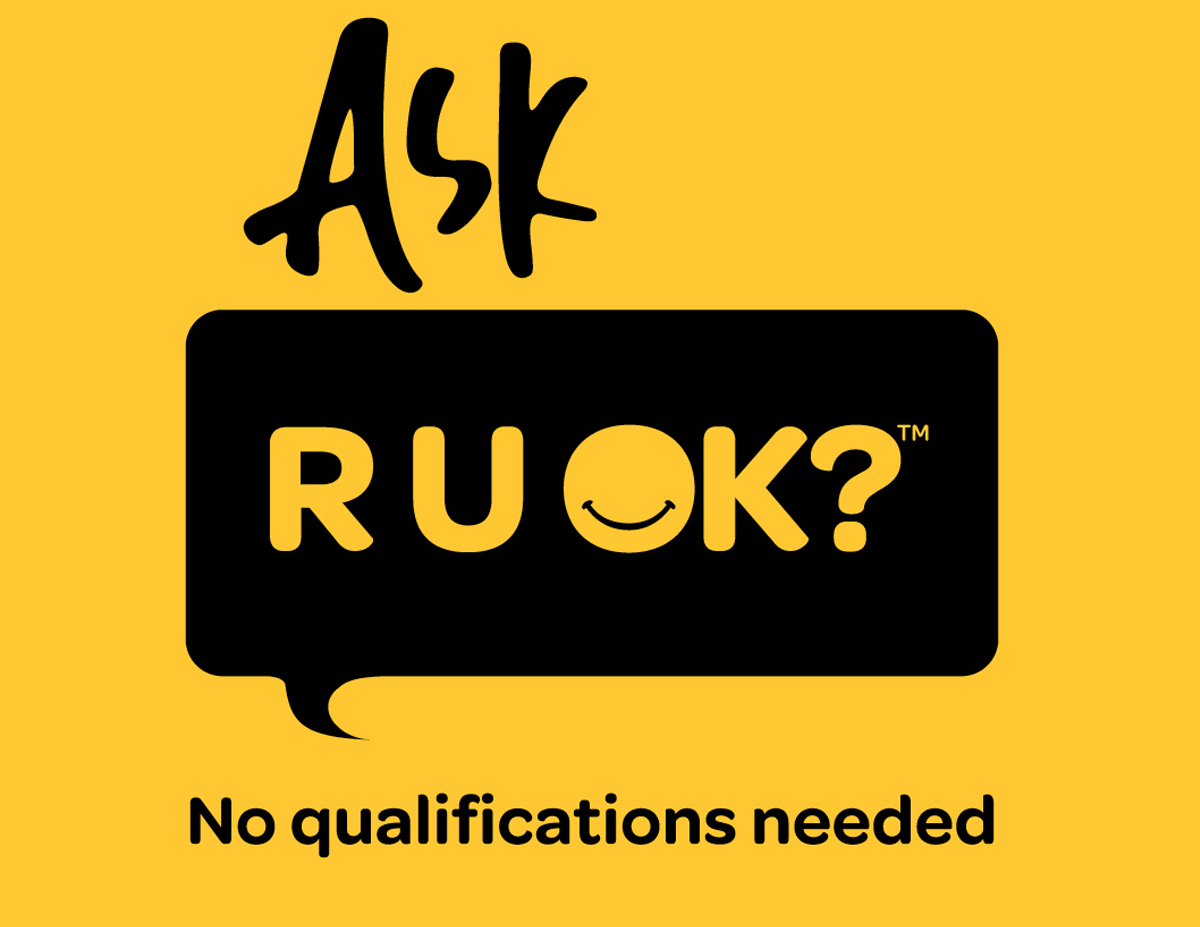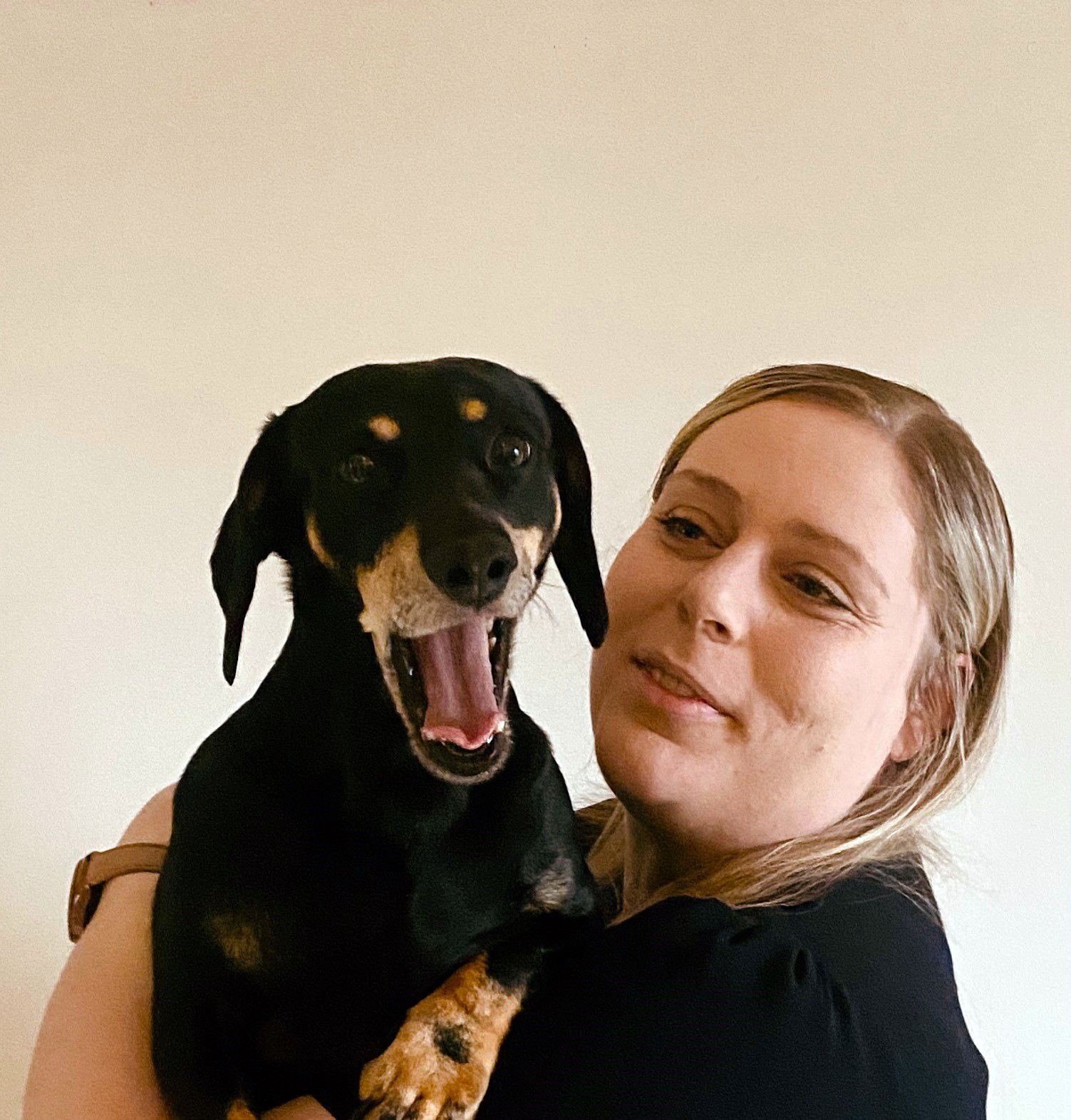'R U OK?' Day is our national day of action where we can all ask 'are you OK?' and start a meaningful conversation that could change a life. You don’t need to be an expert to have an 'R U OK?' conversation. Listening and giving someone your time might be just what they need to help them through.
The ACCCE celebrated the day with an R U OK? Day breakfast co-hosted by SHIELD.
SHIELD is the AFP’s organisation-wide health service and provides members with access to a dedicated team of clinicians and health professionals who understand the unique nature of our work.
The ACCCE work collaboratively with SHIELD to help manage aspects of the physical and mental stresses that we encounter in both work and home life.
As part of R U OK day, we sat down with Sophie – one of our friendly SHIELD Psychologists to ask about her role, advice to combat stress and how to ask… R U OK?

Hi Sophie,
How long have you been with the AFP?
I started in January 2022 and have been enjoying my role over the past eight months. Prior to the AFP, I worked in disability and employment services, forensic services, suicide prevention and veteran support services.
What is your role at the ACCCE?
My role is to provide onsite psychological support to members through routine appointments and additional support as needed. I also provide psychology focused education sessions and training.
What’s the most rewarding part of your role?
Spending time with members and supporting them in any capacity I can. It’s a great privilege to provide a safe space where people can discuss how they are going and work together to achieve positive outcomes. I also enjoy working with the supportive teams we have at the ACCCE and wider organisation.
How do you advise people to best manage stress in the workplace and at home?
Treatment should always be tailored to each individual and what works best for them. Start with identifying when you’re feeling stressed or if stress is building. Each technique for managing stress has pros and cons so we need a variety to choose from. Having your de-stress tool kit fully-stocked will help when you need to draw from it.
In times of stress, our brain attempts to respond to the circumstance, and processing what tools to use can be difficult. Have these techniques listed somewhere so you can recall them when feeling stressed or overwhelmed. It also helps to practice these when not stressed to maintain wellbeing, resilience and create a buffer to stress.
Techniques to consider include:
Movement – we often process and store the effects of our emotions in our body so any form of body movement can help. This can include yoga, team sports, walking, weightlifting or swimming.
Rest your mind with distraction – such as TV, games, puzzles, etc. These coping skills are great at giving your mind a break and can be used in the workplace, at home and while travelling.
Listen to music or sound – create a soothing playlist or put on something fun and enjoyable to sing to or dance it out.
Engage your creative side – with art, building, fixing things around the home, gardening, cooking, playing an instrument/ creating music, writing, handcrafts etc.
Reduce screen time – spend time away from TV, computers, phones, tablets and other devices to give your mind some quiet time.
Connect with your supports – family, friends, pets and professional supports.
Find your Zen – meditation, breathing exercises, progressive muscle relaxation and grounding exercises.
Write it down –Journaling, writing down worries, identifying priorities or creating a to-do list can help take information out of the mind and assist with emotional processing.
What’s your favourite way to de-stress?
I always feel better after spending time with my dog Eva, whether that’s taking her for a walk, sitting down for a cuddle or laughing at her antics. I also love connecting with my support network, with nature through bushwalks or exploring new places, and connecting body and mind through exercise or self-care activities.

What’s the best way to ask someone R they OK?
- Be genuine and ask open questions such as “how have you been recently?”, “what has been happening for you”?
- Be prepared to listen and have the time to ask some follow-up questions if the person does want to talk.
- Provide encouragement and positive reinforcement for telling you how they are and ask them what they need from you for support.
- Take care of yourself afterwards as well and reach out to someone if needed for additional support.
- These approaches and many more tips and advice can be found at RUOK.org.au:
How can people get more help if they need it?
There are many pathways to mental health support including:
Speak with your GP to obtain a Mental Health Care Plan or ask for a local referral.
Head to health provides digital mental health services such as apps, online programs, phone services and information resources.
For immediate support, there are 24/7 telephone services available including:
- Lifeline 13 11 14
- Beyond Blue 1300 224 636
- Kids Helpline (ages 5-25) 1800 551 800
- Suicide Call Back Service (age 15+) 1300 659 467
- 13 Yarn (Aboriginal and Torres Strait Islander support) 13 92 76
- 1800 Respect (sexual and domestic violence support) 1800 737 732
- MensLine Australia 1300 789 978
- Open Arms (Veterans and Families Counselling Service) 1800 011 046
- Q Life (LGBTI) 1800 184 527
- Butterfly Foundation (eating disorders or body image) (8am – midnight), 7 days a week 1800 334 673
Thanks for speaking with us today. Any final tips you want to add?
Be kind to yourself and give yourself time to master a new coping skill or strategy.
Make a difference to someone’s day by starting a conversation and normalising that it is okay to reach out for support to those around you.
Bookmark the services, information and resources you like the most, and add them to your personal stress busting tool kit.
As always, seek professional support if you need it.

